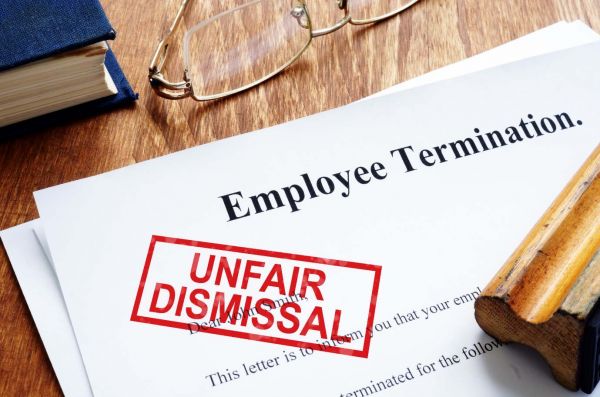Mr Calleja was employed as a full-time spring maker until his employment was terminated by his employer in March 2021. Mr Calleja subsequently made an unfair dismissal claim. The former employer raised multiple defences to Mr Calleja’s claim, one of which was that Mr Calleja had not been employed for long enough to make an unfair dismissal claim, and that they had calculated his length of service excluding periods of “unauthorised” absence. One of the questions for the Fair Work Commission was how to calculate the minimum employment period, with particular reference to absences, including “unauthorised” absences.
Mr Calleja fell ill in November 2020. His condition required an operation and he made a WorkCover claim through the workers compensation scheme in Victoria.
Mr Calleja did not report the injury in accordance with his workplace policies and his employer objected to the WorkCover claim.
The objection to the WorkCover claim during Mr Calleja’s employment led to unpleasant and disrespectful messages between Mr Calleja and Mr Caramanico (a director of the employer). Mr Caramanico:
- issued a warning stating communications from Mr Calleja were unwanted and threatening; and
- instructed Mr Calleja not to enter the workplace to collect his tools when attending to submit his medical reports.
Mr Caramanico allegedly told at least two employees that Mr Calleja was a chronic alcoholic and took drugs. This led to a series of further texts from Mr Calleja, which he stated was due to feeling stressed and angry. This led to more written warnings from his employer to the effect that “any harassment or threats not related to his illness will invoke an immediate dismissal.” His employer also challenged the medical evidence provided and accused Mr Calleja of misleading the insurer because he did not disclose certain medication he was taking, which was precluded him from operating machinery.
Mr Calleja’s WorkCover claim was accepted (while Mr Calleja was still employed). WorkCover informed the employer Mr Calleja was fit to return to work for modified duties and informed them of their obligations. However, with WorkCover claim at an end, Mr Caramanico emailed Mr Calleja a letter terminating the employment immediately with the reason of downturn in business.
Mr Calleja made an unfair dismissal claim to the Fair Work Commission (FWC) after his employment was terminated. This claim was disputed by his employer, who made various contentions including that:
- Mr Calleja’s took periods of absences which were “unauthorised” and excessive;
- deduction of unauthorised leave reduced the minimum employment period required for protection from unfair dismissal;
- the injury the subject of the workers compensation claim was not attributable to work; and
- the termination of employment was genuine redundancy and therefore not unfair.
Unauthorised Annual Leave and the Minimum Employment Period
The Fair Work Act 2009 (Cth) (Act) provides that the FWC may order a remedy if it is satisfied the applicant is protected from unfair dismissal and has been unfairly dismissed. However, the Act requires the FWC to consider where a person is protected from unfair dismissal before turning to the merits of the application.
Mr Calleja would be protected from unfair dismissal if he completed a minimum employment period of 6 months, or 12 months if his employer was a small business employer as defined in the Act.
The minimum period of employment starts when the employee commenced employment and finishes when the employee is notified of the dismissal or immediately before the dismissal, whichever occurs first. Mr Calleja had met the minimum employment period based on the date he commenced with his employer (16 March 2020) and when he was dismissed (on 24 March 2021), however certain types of absences can be excluded from determining whether the minimum employment period has been met.
The employer contended leave taken by Mr Calleja which was not accompanied by a leave form signed by a manager or leading hand is unauthorised, although it was not contended Mr Calleja had not advised of his absences on each occasion. For the purpose of the FWA, unauthorised leave is any period of unauthorised unpaid leave or unpaid authorised leave.
The FWC considered the leave requirements in the National Employment Standards (NES) and concluded the “period for deduction from the minimum employment period is unpaid personal leave and absences without authority.” Based on the evidence before the FWC, 15.5 hours were deducted from the minimum employment period. The FWC found that Mr Calleja had complied with the standards in the NES for taking personal leave, stating “the additional [employer] requirement that a leave form is completed may be of assistance for administrative purposes but does not override the NES entitlement.” Absences from the date of acceptance of the workers compensation claim were excluded in determining the minimum employment period.
The FWC found if the employer was a small business, even with the deduction of 15.5 hours of unpaid personal leave, Mr Calleja had still met the minimum employment period of 12 months.
Section 387 factors
Having found Mr Calleja was protected from unfair dismissal, the FWC then considered certain factors under section 387 of the Act in determining whether the dismissal was unfair. Those factors were dealt with as below:
- Valid reason for dismissal – The reason provided for dismissal was the downturn in business. No further explanation was given, with no consultation or actions taken to mitigate dismissal. The Commission was of the opinion that the evidence pointed to the employer dismissing the employee due to the workers compensation claim, with the downturn a contrived reason.
- Notification of a valid reason – While Mr Calleja was given warnings in the past, none of the past warnings related to the reason provided for termination, which was instead the contrived reason of redundancy.
- An opportunity to respond – Mr Calleja was not provided an opportunity to respond to either the contrived reason for dismissal or the real reason for dismissal. Mr Caramanico submitted that this was due to the hostile conduct towards himself by Mr Calleja in his texts.
- Support Person – A support person was not unreasonably refused. However, this was due to the employer refusing to meet with Mr Calleja altogether.
- Warnings about unsatisfactory performance – Performance during work was not an issue before the Commission.
- The size of the employer and dedicated HR personnel – The Commission observed that though the employer had more than 15 employees, it was not a large business and did not have the resources to deal with employment obligations in a sophisticated manner. However, the Commission observed that to expect employees to comply with policies, the responsibility of managing compliance rests with the employer. If there is consent to non-compliance, the employer cannot blame the employee for non-compliance.
- Other relevant matters – The Commission observed that Mr Calleja was not helped by his own behaviour by sending texts which were inappropriate. However, this was due to the breakdown in relationship caused by the employer’s actions such as interpreting medical information without the relevant expertise, denying a workplace right, and sharing private medical information with others.
The Commission found that the dismissal was harsh, unjust or unreasonable and Mr Calleja’s unfair dismissal application was successful.
Learnings
This matter highlights the importance of considering any absences in determining the minimum employment period for eligibility to make an unfair dismissal claim and re-iterates the importance of employers providing a valid reason for dismissal. The reason should be a genuine reason and cannot be contrived or fanciful. Prior to dismissal, steps should be taken to mitigate the reasons of dismissal.
A full copy of the decision, Charles Calleja v Auswire Industries (Vic) Pty Ltd atf The Thomas Wragg Family Trust [2021] FWC 6073, can be found here.
If you are involved in unfair dismissal proceedings, or considering making or defending an unfair dismissal application, and require advice and prompt attention to your matter, please contact Griffin Legal.



